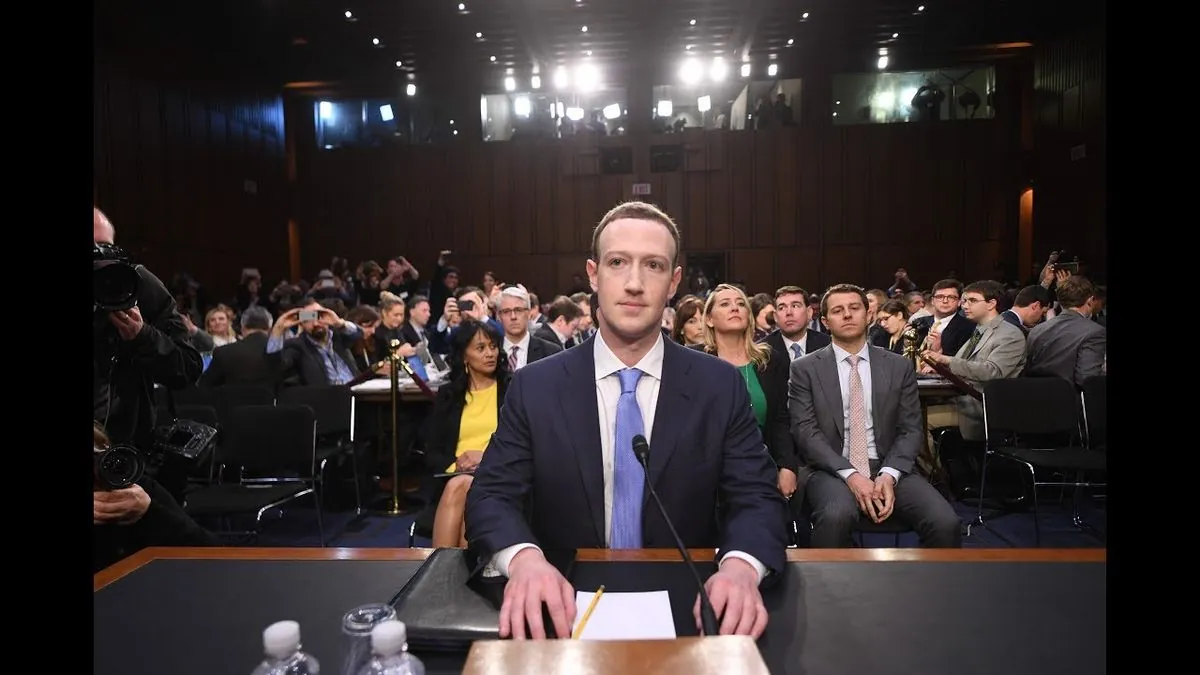Zuckerberg Admits to Social Media Censorship During Pandemic and Election
Meta CEO Mark Zuckerberg acknowledges pressure from White House to censor content during COVID-19 and 2020 election. Admission raises concerns about free speech and tech giants' influence on public discourse.

In a recent disclosure to a US Congressional Committee, Mark Zuckerberg, CEO of Meta, acknowledged that his social media platforms, including Facebook and Instagram, were pressured by the White House to censor public discussions during the COVID-19 pandemic. This admission, coming approximately four years after the onset of the global health crisis, has sparked significant debate about the role of tech giants in shaping public discourse and the potential threats to free speech.
Zuckerberg revealed that the censorship extended to "humour and satire" related to the pandemic, as well as reporting on Hunter Biden's laptop and overseas business affairs during the 2020 US presidential election. This revelation has profound implications for public health communication and democratic processes, particularly given that Facebook boasts over 2.9 billion monthly active users worldwide as of 2024.
The concept of "disinformation" has been at the center of this controversy. While the term gained prominence during the Cold War to describe Soviet propaganda tactics, it has evolved into a contentious buzzword often used to discredit factual information. This misuse of the term has led to the suppression of legitimate journalism and stifled free discussion on crucial issues.
Zuckerberg's response to the committee lacked substantial remorse, stating, "We own our decisions" but adding that "we made some choices that, with the benefit of hindsight and new information, we wouldn't make today." This approach fundamentally misunderstands the nature of free speech, which is not limited to government-approved "facts" subject to retrospective review.

The comparison to the Roman Inquisition's treatment of Galileo Galilei in 1633 for supporting heliocentrism is apt. Zuckerberg's attitude reflects a similar lack of understanding about the importance of free and open exchange in the pursuit of truth.
"We own our decisions, but we made some choices that, with the benefit of hindsight and new information, we wouldn't make today."
The tech revolution and political interference have eroded freedoms fought for over centuries. While the First Amendment to the US Constitution has protected freedom of speech since 1791, the digital age has presented new challenges to these fundamental rights. In the UK, where free speech is protected under common law and the Human Rights Act 1998, there is growing concern about a pro-censorship lobby that seems to prioritize "tackling harm" over protecting free expression.
The rebranding of the UK's Counter Disinformation Unit, established in 2019, to the National Security Online Information Team raises questions about the government's approach to online content regulation. This, coupled with the ongoing debate surrounding the Online Safety Bill introduced in 2021, highlights the delicate balance between protecting users from harmful content and preserving free speech.
As we navigate these complex issues, it is crucial to remember that free speech is not a politically-influenced corporate privilege but a fundamental right. The responsibility for upholding democratic values cannot be left to foreign tech billionaires or government agencies acting without proper accountability. Only through a commitment to open dialogue and the rule of law can we hope to address the challenges of the digital age while preserving the freedoms that form the foundation of our democratic societies.


































